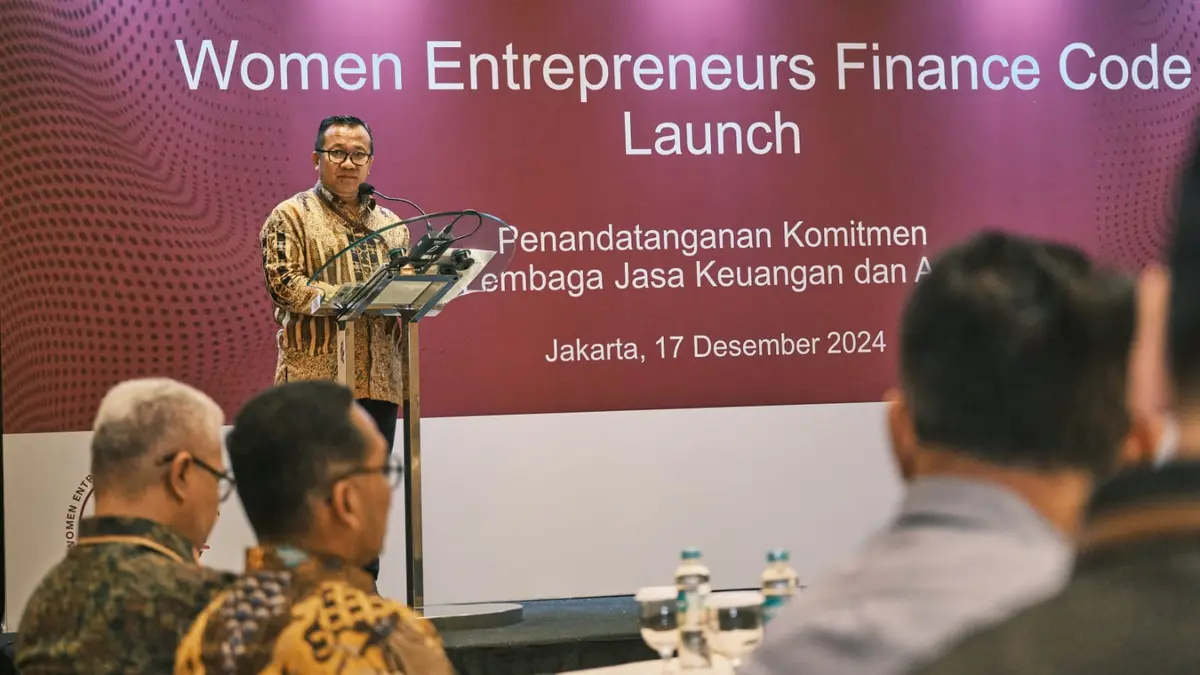Indonesia Strengthens Women’s Economic Empowerment with WE Finance Code
Indonesia has taken a groundbreaking step to bridge the financing gap for women entrepreneurs by adopting the Women Entrepreneurs (WE) Finance Code. On December 17, 2024, several financial institutions and women’s business associations signed a commitment to implement the WE Finance Code, an initiative aimed at supporting women-led micro, small, and medium enterprises (WMSMEs). The ceremony was witnessed by the Ministry of Finance, Bank Indonesia (BI), and the Financial Services Authority (OJK).
Prominent signatories include Bank BCA, BTPN Syariah, BJB, Nobu Bank, and fintech players such as Amartha and Gradana. Key associations like the Indonesian Sharia Fintech Association (AFSI) and the Indonesian Women Entrepreneurs Association (IWAPI) also pledged their support. This collaboration marks Indonesia as the second country globally to commit to the WE Finance Code, after its soft launch in December 2023.
Bridging the Financing Gap
The WE Finance Code is designed to address the long-standing financial barriers faced by women entrepreneurs, particularly in developing economies. Supported by the Asian Development Bank (ADB) and the Islamic Development Bank (IsDB), the initiative establishes uniform standards and practices to enhance financial access for women-led MSMEs.
According to Adi Budiarso, Head of the Financial Sector Policy Center at the Ministry of Finance, the economic potential of women entrepreneurs is vast. Women constitute nearly half of Indonesia's population, and their contributions to the economy could be amplified with proper financial support and guidance. “The WE Finance Code is a key step to unlocking this potential,” he stated.
Three Key Pillars and Expected Outcomes
The WE Finance Code is built upon three core pillars: leadership, data, and action. Wendy Teleki, Head of the Women Entrepreneurs Finance Initiative (WE-Fi) Secretariat, praised Indonesia’s efforts to drive innovation and collective action across financial sectors, both conventional and sharia. She expressed optimism that Indonesia could serve as a global model for reducing financial inequality for women entrepreneurs.
The implementation of the WE Finance Code is expected to deliver three key outcomes:
- Unified Definition of Women Entrepreneurs: A standardized definition will ensure cohesive efforts across stakeholders and is set to be integrated into an upcoming Presidential Regulation by the Ministry of MSMEs.
- Sex-Disaggregated Data (SDD): SDD will empower policymakers and financial institutions to track progress and refine initiatives to better serve women-led MSMEs.
- Investor Support: By fostering tangible actions, the initiative aims to attract investors to close the financing gap for women entrepreneurs.
Future Implications for Women-Led MSMEs
Siti Azizah, Deputy for Entrepreneurship at the Ministry of MSMEs, emphasized that access to finance remains a significant challenge for women entrepreneurs. The Ministry has introduced flagship programs to enhance financial inclusion and mentorship for women-led MSMEs. Azizah hopes that the financial sector’s commitment to the WE Finance Code will create more inclusive financing opportunities.
ADB’s representative, Keiko Nowacka, applauded Indonesia’s leadership in adopting the WE Finance Code. Both ADB and IsDB reaffirmed their commitment to supporting this initiative, which is anticipated to make significant contributions to national economic growth.
By aligning policies and creating an inclusive financial ecosystem, the WE Finance Code aims to empower women entrepreneurs, enabling them to drive progress at both household and national levels.
Read More






 Wednesday, 04-03-26
Wednesday, 04-03-26







